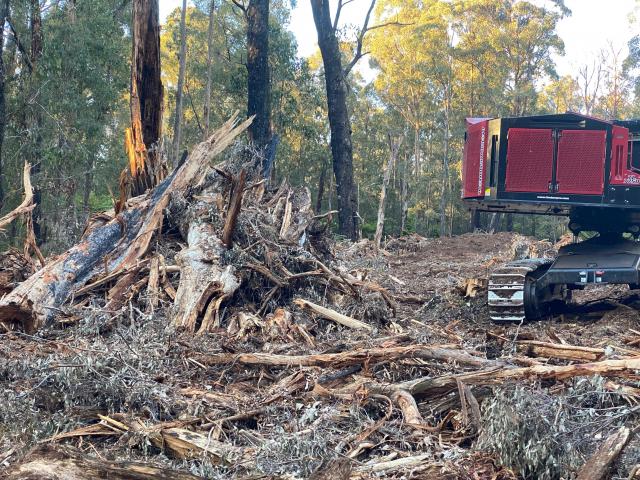
By Callum Ludwig
The Victorian Government has proposed substantial changes to the laws which govern logging in Victoria’s native forests after concerned community groups bought court cases against state logging agency VicForests for alleged illegal logging.
As of 15 February, a 28-day public consultation period has opened, where the public can submit a written submission and/or survey at the Engage Victoria website to have their say on the proposed changes to the logging code.
Kinglake Friends of the Forest have alleged VicForests have logged illegally in dozens of areas across the state. Gayle Cole, from Friends of the Forest, said the government appears to be systematically removing the ability of community groups to hold VicForests to account.
“As our natural environment diminishes before our eyes, so too do the laws that should protect it,” said Gayle Cole of Kinglake Friends of the Forest.
“It’s no wonder Australia has the highest rate of mammal extinction in the world.”
Kinglake Friends of the Forest have brought two cases against VicForests to the courts, with the Supreme Court implementing a temporary mandatory injunction preventing VicForests from accessing 2700 hectares of forest, slated for logging, while the trial continued.
Kinglake Friends of the Forest allege VicForests allowed logging over limits imposed after the 2009 Bushfire Royal Commission, which restricts logging in fire management zones, protecting communities like Kinglake, who have been devastated by bushfires like Black Saturday in the past.
Regulatory changes in the 2022 Proposed Variation of The Code of Practice for Timber Production allows an increase in the amount of logging allowed in Fire Management Zones, making the alleged illegal logging essentially legal.
The proposed changes to the code aim to specify how much harvesting can occur in Bushfire Moderation Zones and specify how rolling five-year harvest limits are to be calculated in the future.
VicForests said “the Code of Practice is a matter for the Department of Environment, Land, Water and Planning” and declined to comment.
A Victorian Government spokesperson said strong environmental protections are fundamental in the Code of Practice and that isn’t changing.
“The Andrews Labor Government’s proposed changes to the Code of Practice for Timber Production 2014 and its incorporated Management Standards and Procedures, are about ensuring the Code is clear and enforceable,” they said.
“The proposed amendments to existing clauses will reduce ambiguity and make VicForests’ obligations under the Code clear.”
The government spokesperson also said that legal cases and challenges were what instigated the need to amend the code.
“Legal challenges made it clear we needed to make the Code clear and enforceable to protect the environment and give certainty to the industry in the lead up to the phasing out logging of native timber forests in 2030 and that’s what these changes will achieve.” they said.
The subject of another court case against VicForests, the protection of native Yarra Ranges shrub the Tree Geebung, was brought by Warburton Environment and is addressed in the amendments.
The announcement of the variation in the code of practice revealed a change to the wording of the clause regarding the protection of the endangered plant. The protection of the plant was initiated in the Forest Management Plans in the 1990s when it was regarded as rare. Now the Tree Geebung is listed as endangered and possibly critically endangered.
The Tree Geebung is critically reliant on responsible harvesting, requiring roughly 150 years to mature and contribute to the bank of seeds the plant stores within the soil. The forests the Tree Geebung resides in are designated to be harvested between every 80 and 120 years, with any second rotation harvest potentially resulting in local extinction of Tree Geebung unless a proportion of the population is protected in unharvested areas.
However, the currently proposed variation in the code of practice could wind back the protection for this native flora.
The Code currently protects endangered species like the Tree Geebung to protect ‘mature’ plants ‘where possible’.
The Victorian Department of Environment, Land, Water, and Planning has plans to rework the definition of ‘mature individuals’ to be more fit for the plant’s life cycle and implement a ‘where reasonably practicable’ stance instead of ‘where possible’ in order to enforce that impacts on the Tree Geebung are to be avoided at all costs.






